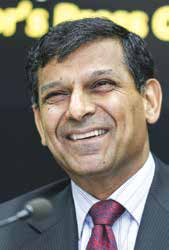
Raghuram Rajan applauded the monetary policy committee led by his successor Urjit Patel, which has been rubbed on the wrong side in recent times by some government advisers for keeping interest rates too high. Former RBI governor Rajan said the six-member panel headed by Patel is doing a good job in focusing on inflation. Price targets are useful for countries that suffer from high inflationary pressures, he added. It was his initiative, but it came into force soon after the end of his term. This has created an arms-length distance between the government and the governor, who previously was the sole decider on interest rates, reducing the possibility of friction between policymakers in New Delhi and Mumbai, where the RBI is based. According to most economists’ surveys, inflation has breached the authority’s target and is forecast to stay high. Apart from this, Rajan was also instrumental in prodding Indian lenders to start identifying and cleaning up about RS210 billion of stressed assets on their balance sheets.
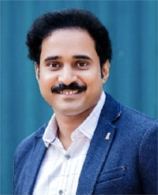
Santosh Vellanki, general manager, people consulting task force, corporate HR at Reliance Industries joined UPL Group as head of talent acquisition & young talent management. He will also lead as HR business partner (HRBP) for all corporate functions of this RS 2.5 billion agrochemical firm. He will report to the Group CHRO Jayaram Philkana, and will be based out of Mumbai. At Reliance Industries, Vellanki was involved in HR transformation, leadership and HR platform projects. A computer engineer, Vellanki has completed an MBA in human resources from SIBM Pune. He also holds a master’s degree in communication & journalism from PST University and a diploma in cyber law from Government Law College, Mumbai. He has also worked with Tata Motors, where he was leading the talent acquisition function for the passenger vehicles business unit and the engineering research centre. He was also instrumental in setting up the policy, process and digitisation framework in the TA function.
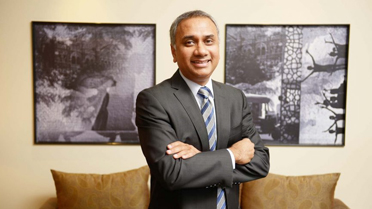
Infosys has informed BSE that its new CEO, Salil Parekh will draw an annual fixed salary of Rs.6.5 crore. The fixed pay will be paid monthly in accordance with the company’s normal payroll practices. From the beginning of the new financial year, which is April 1, 2018, Parekh will be eligible for a variable pay of Rs.9.75 crore which will be subject to the company’s achievement of several milestones. For the interim period till March 31, Parekh will get a variable pay of Rs.2.37 crore. It is also stated that under any circumstances, variable pay in a fiscal will not exceed 125 per cent of the target variable pay. However, Parekh’s pay is still lower than his predecessor Vishal Sikka. In a fiscal, Parekh will draw a maximum of Rs.16.25 crore. In comparison, in 2015-16, Sikka drew an annual package of a whopping Rs.49 crore more than three times of what Parekh will get. In fact, Sikka was one of the most expensive CEOs in the IT sector. In 2015-16, the then TCS chief N. Chandrasekaran was paid a package of Rs.25.6 crore and Wipro CEO Abidali Neemuchwala’s annual pay was Rs.12 crore.
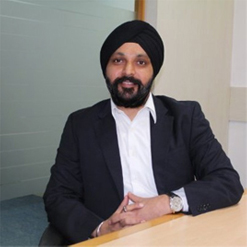
From IndiGo’s Interglobe Aviation to Bajaj Finance has been the next stop for Sukhjit S. Pasricha, who joins Bajaj Finance (Bajaj FinServ) as chief of HR & Admin. Stepping into the finance industry, Pasricha has moved his base to Pune, where the rapidly growing NBFC’s headquarters are situated. With 500 branches across the country and over 13,000 employees, Pasricha admits that he is looking forward to his new role in the domain. “Moving from one growing sector to another and challenging the status quo to take up a larger opportunity for HR transformation is what made me decide to move to Bajaj Finance,” said Pasricha about his new venture. A Punjab University graduate and an MBA in HR from GNDU, Pasricha began his career with the Vardhman Group, before moving to Spice Communications, and thereafter joined Airtel in 2002 as the Head HR for AES. After three years, he entered PepsiCo as the MU HR head. Moving to Apollo International after a year and spending one year there as the Chief Corporate HR, Pasricha rejoined Airtel in 2007 and moved up the ladder to take up the position of senior VP HR (CHRO—enterprise services business) in 2008 and then the senior VP HR (Airtel Africa) in 2010. He then moved to IndiGo in 2013.
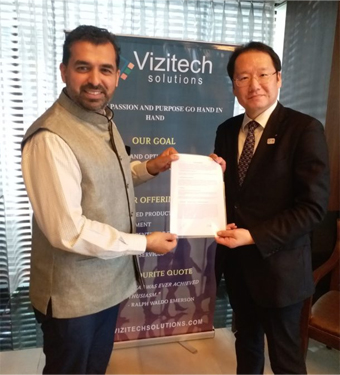
A Pune-based financial technology firm, Vizitech Solutions, got Japan’s connection as they signed a memorandum of understanding with Chaintope, a Japanese blockchain startup, to set up a blockchain research and development (R&D) centre in Pune. This is with the foresight to enhance skill sets for blockchains in India and carrying out innovative research to aide Chaintope’s ongoing international projects. Blockchain is a ledger system which eliminates intermediaries and middlemen, to provide a system that cannot be hacked. The deal was struck when Anandsagar Shiralkar, the founder and CEO of Vizitech Solutions, and Hideki Shoda, the founder of Chaintope, signed the MoU. “While blockchain is only in its nascent stages, it could become a $3-billion-$5-billion market in India in the coming years. Several state governments, including Andhra Pradesh, Karnataka and Maharashtra, are keen on incorporating blockchain into their governance systems to improve transparency. Blockchain can be incorporated into e-governance, financial services, logistical services, energy dealing as well as land dealings and real estate, thus providing immense business opportunity in the future,” said Shiralkar. He went on to add that it will not only focus on research but also train manpower in blockchain application development. “Of the initial 20 engineers, three will be selected and sent to Japan for in-depth training in blockchain application development. These engineers will then train the others and conduct research for ongoing projects,” he said. Shiralkar said Vizitech has already launched an online module on blockchain, which has been accessed by nearly 16,000 people across the globe. “As blockchain is comparatively new and complex, there is a need to spread awareness about this revolutionary technology,” he stated.
Infogain got in Rajiv Naithani as head of HR for India operations. Naithani has moved from Dassault Systèmes (3DS), where he was director-HR for the R&D and Services businesses in India. He will report to Phil Johnson, head-global human resources. With four branches spread over the country, Infogain, a technology services company has over 2000 employees in its centres in Noida, Mumbai, Bengaluru and Pune. A graduate from Delhi University and an OD professional from ISABS, Naithani also holds qualifications from IIM-Calcutta (senior management programme) and XLRI Jamshedhpur (postgraduate HR programme). He has been the country’s HR head and global OD leader for GlobalLogic. He has also managed human resources at companies such as Interglobe Technologies, Innodata and HCL in the past. A spiritual practitioner, social activist, Naithani has over 15 years of experience as an OD professional and is also a seasoned HR leader. Talking about the move, Johnson, to whom Naithani will be reporting stated, “Infogain is on a journey of growth and transformation, and our HR leaders will play a crucial role in identifying the right talent and creating a culture of innovation and learning.”
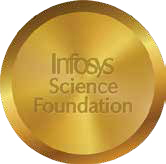
Infosys are just not the leaders in technology services and consulting, they have been leaders in many folds. The Infosys Science Foundation (ISF), which was found in the year 2009, is no different as this is one of their flagship initiative. And they (Infosys) always are the front runners in rewarding the stellar work. In a function held in Bengaluru recently, the ISF honoured the winners of the Infosys Prize 2017, while celebrating their inspiring journeys and contributions to science and research.
The laureates of the Infosys Prize 2017 are: Prof. Sanghamitra Bandyopadhyay (Engineering and Computer Science); Prof. Ananya Jahanara Kabir (Humanities); Prof. Upinder Singh Bhalla (Life Sciences); Prof. Ritabrata Munshi (Mathematical Sciences); Prof. Yamuna Krishnan (Physical Sciences) and Prof. Lawrence Liang (Social Sciences). The chief guest, Prof. Kip Thorne, Feynman Professor of Theoretical Physics, Emeritus at the California Institute of Technology (Caltech) and Nobel Prize 2017 Laureate, felicitated each laureate a purse of Rs.65 lakhs, a 22-karat gold medallion and a citation certificate
Among the other who were present were K. Dinesh, President of the Board of Trustees, N. R. Narayana Murthy, Nandan Nilekani, T. V. Mohandas Pai, S. Gopalakrishnan, and Srinath Batni. The event was also attended by eminent scientists and academicians from India and abroad, business leaders, young researchers and students. The winners this year—three women and three men, are a true testimony to the symbiotic relationship between science and society. The winners were chosen from 236 nominations by jurors headed by eminent academics.
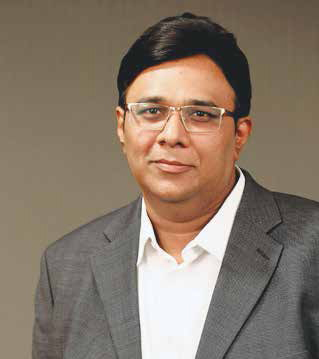
It is a homecoming for Kaustubh Sonalkar as he starts his second innings with Essar Group as President HR and CEO, Essar Foundation. His earlier association with the company was as senior vice president and Head-HR. Sonalkar has moved from the Future Group, where he was group chief people officer handling HR, communications, CSR, corporate relations, M&A, new business development and customer experience. This position was lying vacant since Adil Malia moved on from the Essar Group. Armed with more than two decades of experience, Sonalkar has worked with PricewaterhouseCoopers as senior partner and executive director-EMEA (people & change and sports). This is his second stint with Essar. Earlier, he was associated with Essar Energy for a couple of years as senior vice president and head-HR. “I look forward to this new, exciting role that will require me to engage with both our people and the community at large, the pillars on which Essar stands, and take the brand to loftier heights,” said Sonalkar about the move. Commenting on Sonalkar’s venture, R.K. Sukhdevsinhji, Director, Essar, said, “In this dual role, Kaustubh will be in charge of building on the strong people and community focus that will continue to define Essar’s journey into its next phase of growth. Aside from his varied experience and professional competence, what sets Kaustubh apart is his familiarity with our ethos. I welcome him back to Essar and wish him the very best.” An entrepreneur in his own right, Sonalkar has experience of syncing business agenda with people management, designing proactive and predictive policies as opposed to reactive measures, and using technology to further his cause is the core of his operation. But he believes treating people like people, with heart, is more important than any innovation. He is of the belief that integrating people and cultures into the business is critical for any success. Mergers and acquisitions, marketing and branding, product development, human capital management and managing corporate relations and communications with local and government bodies across the globe are some of his key strengths. He holds a bachelor’s degree in science from the University of Mumbai and a master’s in personnel management from the University of Pune (HR and behavioural sciences). He also holds an MSc degree from the London School of Economics
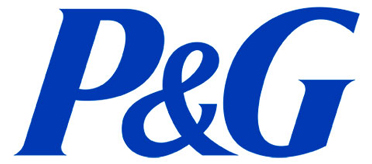
FMCG giant, Procter & Gamble, has taken a leader’s spot as it is in to promote gender equality. In association with the WEConnect, with the resource sharing symposium, they together will give a boost to the women-owned enterprises across India. WEConnect is a nonprofit organisation that facilitates inclusive and sustainable growth for women-owned businesses. “We believe in the power of diversity because it is the right thing to do for the growth of the business and the communities we operate in. Investing in women entrepreneurs and women-owned businesses makes sense for the economy, the community and for us. Our initiative is in line with the Indian government’s efforts to empower women economically. By committing a percentage of our spending to women-owned businesses, we’re not only doing the right thing for the Company, but also being socially responsible. The impact of our spending with women-owned businesses helps to stimulate economic growth in communities that are often overlooked, which in turn, promotes job creation and further opportunities, said Al Rajwani, MD & CEO, P&G the India Subcontinent commenting on the initiative. Through this collaboration, P&G will train suppliers on the relevance of a supply chain, in which men and women contribute equally. The USD 30 million sourcing will happen over the next three years, and the entire initiative will be in sync with P&G’s commitment to promote gender equality as envisioned by the United Nations’ sustainable development goals (SDGs), Apart from this outsourcing aspect, WEConnect and P&G will organise symposiums across the country to ascertain and solve issues faced by women entrepremeurs, and will help them become aware of ways in which they can grow their businesses, and create a supply chain with diverse demographics.
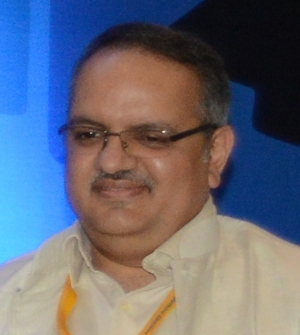
Alok Mehta who took a break from the corporate world for over three years is back in the race as he joined Swedish IT product organisation, Hexagon, as Executive Director - Human Resources (global capability centres), to be based in Hyderabad. After running his boutique management consulting firm, Alouqik Consulting, for over three years, he decided to get back into an HR leadership role. “I loved the adventure and did some good work for multinationals and Indian organisations on transformational coaching, organisation and executive coaching,” says Mehta. In his new role, Mehta will report to the country head and also the global head of human resources. “These are great times for our function. With digitisation being the buzzword, keeping the function ‘human’ is the need of the hour. I intend to focus on building on the strong DNA of the organisation and facilitating in co-creating a greater place to work, and establish the HR function as a pivot in the transformation journey,” he said about his re-entry into the biz world. In a career spanning over two decades, Mehta has been associated with companies such as INTAS Pharma, India Value Fund Advisors, Metro Cash & Carry, AstraZeneca Pharma, Deutsche Bank Group and Motorola India Electronics. A master’s degree holder in personnel management and industrial relations from TISS, Mehta started his career with Ranbaxy Laboratories in 1993, as assistant personnel manager. In the six years he spent with TISS, Mehta worked in corporate HR, looking after international HR operations. He was instrumental in setting up people policies and processes for China, Russia, Myanmar, Vietnam, and a few other emerging markets. He has led the function at the oldest API manufacturing site for Ranbaxy, in Punjab. He also managed employee relations for the field force of South and West India. In addition, he shouldered pan-India responsibility for compensation and benefits and assessment centres.
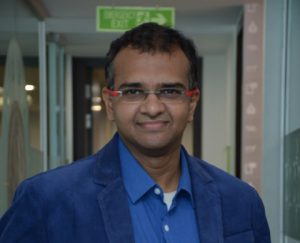
Dilip Asbe, Chief Operating Officer of the National Payments Corporation of India (NPCI), has been appointed its Managing Director (MD) and Chief Executive Officer (CEO), replacing A.P. Hota, who retired recently. Hota, the first MD and CEO of NPCI, assumed office in August 2010. Asbe has led the introduction of digital payment systems such as the unified payments interface (UPI) since NPCI was set up in 2009. NPCI, an umbrella organisation overseeing retail payments and settlement systems in India, is an initiative of the Reserve Bank of India (RBI) and Indian Banks’ Association (IBA), created to help build a strong payment infrastructure. Its 10 core promoter banks are State Bank of India, Punjab National Bank, Canara Bank, Bank of Baroda, Union Bank of India, Bank of India, ICICI Bank Ltd, HDFC Bank Ltd, Citibank N.A. and HSBC Holdings Plc. Last year, it expanded shareholding to 56 member banks. The NPCI CEO’s role is influential in India’s ongoing push to expand digital payments.
by Joe Williams